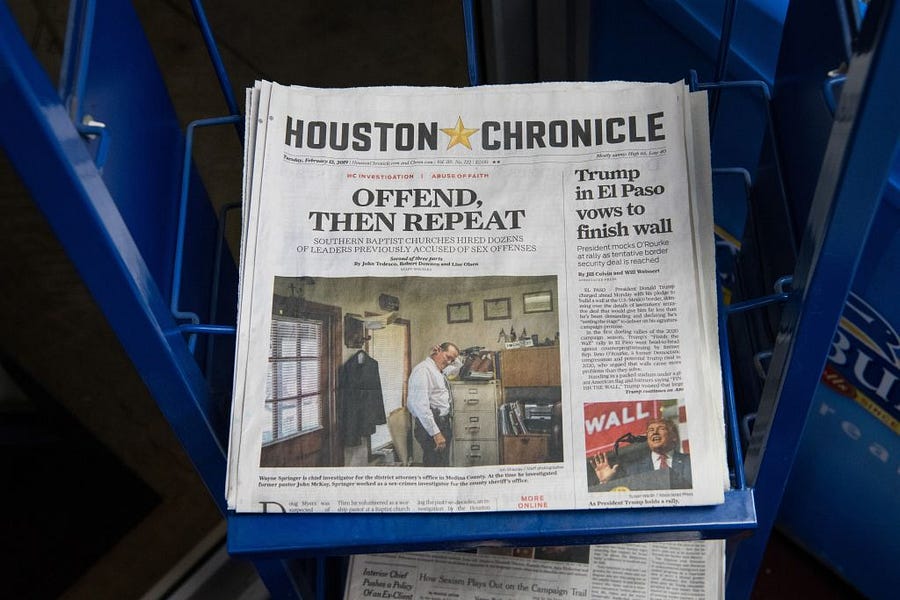Happy Tuesday! We hope you were able to spend some time this weekend reflecting on the sacrifices countless men and women have made for their country—and the ideals they believed were worth dying for. To our readers who’ve served, or whose family members have served: Thank you.

Quick Hits: Today’s Top Stories
Rejecting pleas from Kyiv and pushing back on several reports published last week, President Joe Biden told reporters Monday the United States will not send Ukraine long-range rocket systems (MLRS) capable of striking inside Russia. Russian forces appear to be gaining ground in Ukraine’s Donbas region, reaching the eastern cities of Lyman and Severodonetsk.
European Council President Charles Michel said last night European Union member states had reached a tentative agreement to impose sanctions on Russian oil imports that European Commission President Ursula von der Leyen claims will cut 90 percent of oil imports from Russia to the EU by the end of 2022. The deal—which still needs formal approval—includes several carveouts for nations that had threatened to veto the move, including Hungary and the Czech Republic.
Texas officials admitted in a Friday press briefing that the police responding to the shooting at Robb Elementary in Uvalde, Texas last week made a mistake waiting for backup and equipment before attempting to stop the gunman, who was inside the school essentially unimpeded for more than an hour. “It was not the right decision,” said Steven McCraw, director of the Texas Department of Public Safety. “It was the wrong decision, period. There’s no excuse for that.” The Justice Department plans to conduct a review of law enforcement’s response.
The Federal Reserve’s preferred measure of inflation, the personal consumption expenditures (PCE) price index, increased 6.3 percent year-over-year in April, the Bureau of Economic Analysis reported Friday. The measure was down from 6.6 percent in March, suggesting—as the latest consumer price index (CPI) report did—that inflation may have peaked for now. Consumer spending also rose an inflation-adjusted 0.7 percent in April from a month earlier, as Americans continue spending despite higher prices.
Despite Chinese Foreign Minister Wang Yi’s reassurances, a group of 10 smaller Pacific Island countries—including Fiji, Tonga, Samoa, and Papua New Guinea—opted over the weekend not to sign a sweeping trade and security agreement with Beijing, expressing concerns with certain elements of the proposal and China’s expanding role in the region. Fiji, meanwhile, agreed to join the U.S.-led Indo-Pacific Economic Framework.
Dr. Mehmet Oz released a video on Friday declaring himself the “presumptive” nominee in Pennsylvania’s Republican U.S. Senate primary, despite hundreds of mail-in ballots still in legal limbo and Acting Secretary of State Leigh Chapman ordering an official recount of the race. Oz currently leads hedge fund executive Dave McCormick by about 0.07 percent.
Longtime Democratic Rep. Kurt Shrader of Oregon conceded to his primary challenger, Jamie McLeod-Skinner, on Friday after losing to the Elizabeth Warren-backed progressive by nearly 15 percentage points. Shrader—first elected to the House of Representatives in 2008—had been endorsed by President Biden.
Hurricane Agatha made landfall in southwest Mexico as a Category 2 hurricane on Monday, bringing with it winds up to 105 miles per hour. According to the National Weather Service, Agatha is the strongest storm to ever make landfall along the Pacific coast of Mexico in the month of May.
Southern Baptists Reckon with Abuse

“For almost two decades, survivors of abuse and other concerned Southern Baptists have been contacting the Southern Baptist Convention (“SBC”) Executive Committee (“EC”) to report child molesters and other abusers who were in the pulpit or employed as church staff,” reads the first paragraph of a report released last week by investigative firm Guidepost Solutions. “They made phone calls, mailed letters, sent emails, appeared at SBC and EC meetings, held rallies, and contacted the press … only to be met, time and time again, with resistance, stonewalling, and even outright hostility.”
The report takes more than 200 pages to detail this resistance, stonewalling, and hostility by key leaders of the Executive Committee—the central managing body of the SBC, a network of more than 47,000 churches in the U.S. with some 14 million members. The SBC hired Guidepost after the allegations came to light to investigate how the EC had handled abuse claims, and its report concluded key EC leaders consistently prioritized avoiding legal liability over all other concerns.
Survivors had been sounding the alarm for years about abuse by pastors and leaders within the SBC, but in 2019, an investigation by the Houston Chronicle revealed nearly 400 SBC leaders had pleaded guilty to or been convicted of sex crimes against more than 700 total victims since 1998. The 2021 leak of a letter written by former SBC public policy head Russell Moore alleging EC leaders mishandled abuse claims bolstered calls for what became Guidepost’s investigation of that committee.
The eight-month investigation—which included more than 300 interviews and five terabytes of documents—covers the committee’s actions from 2000 to mid-2021. Its report includes allegations that former SBC heads mishandled abuse reports at their own churches, and that former SBC President Johnny Hunt sexually assaulted a pastor’s wife shortly after leaving office. Hunt acknowledges an inappropriate encounter but denies assault.
The report accuses EC leaders of keeping the committee’s hundreds of trustees—unpaid members who meet less often—in the dark and advising SBC presidents against reforms. EC general counsel and former vice president Augie Boto and longtime SBC lawyer Jim Guenther told SBC presidents various reform efforts would open the network to lawsuits and violate its principle of autonomy of individual churches. “Behind the curtain, the lawyers were advising to say nothing and do nothing, even when the callers were identifying predators still in SBC pulpits,” the report said.
Christa Brown—a sex-abuse survivor and survivor advocate—told the EC she’d been repeatedly raped as a child by her SBC pastor, noted he was now in ministry at a different church, and requested the SBC keep a database of accused leaders. She told investigators that when she spoke about her abuse at a 2007 EC sub-committee meeting, one member turned his back and another chuckled. Thanks to years of such responses, Brown said, “Sexual trauma and faith are inextricably seared together in my brain.” She described the reality as “spiritually annihilating. It is soul murder.”
Boto maintained for years keeping a database of credibly accused SBC leaders would violate the SBC policy of church autonomy and create legal liability, according to the report. But from 2007 on, the report says, Boto and former SBC spokesman Roger Oldham did keep a database, and committee leaders eventually collected the names of 409 believed SBC-affiliated abusers.
“Despite collecting these reports for more than 10 years, there is no indication that [EC members] took any action to ensure that the accused ministers were no longer in positions of power at SBC churches,” the report said, concluding that nine are still in ministry, two affiliated with SBC churches. Meanwhile, Boto called survivors’ efforts to raise awareness “a satanic scheme to distract us from evangelism.”
The EC’s publishing arm, the Baptist Press, “was also used to portray victims in an unflattering light and mischaracterize allegations of abuse,” according to the report. For example, in 2019 Jennifer Lyell—an abuse survivor and employee of SBC-affiliated Lifeway—was asked to write publicly about her sexual abuse by an SBC seminary professor, but the article was changed before publication to suggest a consensual relationship and only corrected months later.
“A lot of what we’re seeing is what a lot of us knew, what we’ve been saying,” Hannah-Kate Williams—an abuse survivor who is suing the SBC for negligence and who helped trigger the investigation—told The Dispatch about the report. “People are shocked just because they haven’t been listening.”
In about 30 pages of recommendations, Guidepost’s report echoes many of the survivors’ and advocates’ requested reforms: launch an online database, compensate survivors, revamp the committee intended to handle abuse reports, and create a program to prevent abuse, among other measures.
After replacing its lawyers, the EC last week released Boto’s 200-page database of abusers—a collection mostly drawn from news reports—after redacting the names of survivors and abusers whose crimes it couldn’t verify. Hunt—the former SBC head accused of assault—resigned from SBC-affiliated North American Mission Board, and NAMB announced it will invite a Guidepost investigation of its organization and train its staff and missionaries in responding to abuse.
A task force set up by the EC to facilitate the Guidepost investigation will propose reforms that SBC church representatives can vote on at the network’s national meeting next month in Anaheim, California. Meanwhile, the task force set up a Guidepost-run hotline to collect any additional abuse reports.
After years of resistance to her advocacy, Williams isn’t convinced the SBC will make changes needed to prevent abuse and properly care for survivors. “I have hope for people, because I know that God redeems people,” Williams said. “But I don’t have hope for a denomination that has been built on racism”—including the SBC’s founding support for slavery—“and abuse. When you build your foundation on evil, you can only expect evil to be the end result.”
Other advocates argue that SBC members and EC trustees can’t blame the church network’s failings on a few bad actors. “A handful of corrupt men commandeered this entire convention and the entire executive committee—not because the vast majority in the convention or on the executive committee were themselves corrupt individuals, but because they were not proactive in getting help,” abuse survivor and attorney Rachael Denhollander told Moore on his podcast last week. “We should have known. And in many cases, we did know and did nothing.”
Worth Your Time
In light of the holiday yesterday, take a few minutes to familiarize yourself with the speech Lt. Gen. Lucian Truscott—leader of the Fifth Army in the final years of World War II—delivered in Italy on May 30, 1945. No full transcript or recording exists, but excerpts have been passed on by military newspapers and a secondhand account from Bill Mauldin, a political cartoonist who was present. “All over the world our soldiers sleep beneath the crosses,” Truscott reportedly said. “It is a challenge to us—all allied nations—to ensure that they do not and have not died in vain.” He then turned his back on the audience gathered at the Sicily-Rome American Cemetery in Nettuno, choosing to instead speak directly to the approximately 20,000 American soldiers buried behind him. “It was the most moving gesture I ever saw. It came from a hard-boiled old man who was incapable of planned dramatics,” Mauldin wrote. “The general’s remarks were brief and extemporaneous. He apologized to the dead men for their presence here. He said everybody tells leaders it is not their fault that men get killed in war, but that every leader knows in his heart this is not altogether true. He said he hoped anybody here through any mistake of his would forgive him, but he realized that was asking a hell of a lot under the circumstances. … He would not speak about the glorious dead because he didn’t see much glory in getting killed if you were in your late teens or early twenties. He promised that if in the future he ran into anybody, especially old men, who thought death in battle was glorious, he would straighten them out. He said he thought that was the least he could do.”
James Kirchick’s new book on the history of gay politicians in Washington is out today, and this excerpt—on Republican-led rumors of a “homosexual ring” of staffers around Ronald Reagan almost sinking his 1980 campaign—is a fascinating read. “A few days before the Republican convention in Detroit, the Washington Post team regrouped in Washington. Undoubtedly, gay men had played prominent roles in Reagan’s political career. But with the important possible exception of Peter Hannaford, none were expected to hold a job in a potential Reagan administration that would require a security clearance,” Kirchick writes. “Had the whole farrago of rumor and innuendo about the gay Reaganite conspiracy come to light during the campaign, it’s difficult to say what effect it would have had on the election. Of all the voters most likely to be troubled by such charges, it would have been the evangelical Christians whose support Reagan was courting so assiduously. Reagan’s eventual 10-point victory over Carter obscures how close the race was during the final stretch. In June, just as the Post investigation was about to unfold, Carter led Reagan 35 percent to 33 percent in a national Gallup poll, and few predicted anything near the landslide Reagan ultimately won. Over four decades later, the plot to out Reagan vividly demonstrates the extent to which the specter of homosexuality cast a pall over American politics.”
Matt Labash’s latest Slack Tide newsletter resurfaces his 2000 profile of Greg Zanis, a Christian carpenter from Aurora, Illinois who devoted his life to delivering crosses memorializing the victims of school shootings and other mass atrocities. “The crosses became the enduring image of the Columbine shootings. While thousands flocked to them—weeping, inscribing, leaving stuffed mementos—others were enraged Zanis had included crosses for the killers,” Labash wrote. “Zanis, who maintains the Bible mandates forgiveness even when it hasn’t been asked for, differentiated the killers’ crosses so subtly that most missed it: He wrote the murderers’ names in Greek script—to ‘mark them as heathens,’ since Greeks, in the New Testament, always represented the ungodly. But the distinction was lost on Brian Rohrbough, father of murdered Daniel, who maintains that there is no forgiveness without repentance, and a double suicide after 13 homicides doesn’t count. Rohrbough went to rebel Hill and removed the killers’ crosses, chopping them up with his circular saw and throwing them in a dumpster. When word reached Zanis, he returned to Columbine, ascended the hill, and took the rest of his crosses home. ‘The scene was desecrated,’ says Zanis.”
Presented Without Comment
Also Presented Without Comment
Also Also Presented Without Comment
Toeing the Company Line
We hope you followed Chris’ advice the past few days! “Take Memorial Day weekend off from having political opinions—or at least audibly gurgling about them,” he wrote in last week’s Stirewaltisms (🔒). “If we could all give it a rest for three days, it would be a worthwhile sign of respect for the sacrifices of people who gave their lives apolitically.”
In Friday’s Uphill (🔒), Harvest and Audrey provide an update on the United States’ acceptance of Ukrainian refugees and assess the likelihood Congress enacts new gun policy reforms in the wake of Uvalde. “Lawmakers are reportedly discussing federal legislative efforts to bolster school security measures and expand background checks for commercial gun sales on the federal level,” they write. “There [also] seems to be an appetite among some Republicans for a federal grant program that would incentivize states to adopt red flag laws.”
The regular crew was back together on Friday’s Dispatch Podcast, discussing the tragedy in Uvalde and what comes next, diving into key takeaways from this week’s primaries in Georgia and Alabama, and checking back in on how much progress Russian forces have made in Ukraine’s Donbas region.
Jonah’s latest G-File argues the United States’ mass shooter problem is so complex that all sides of the debate can be right and wrong—at the same time. “We could do everything right with schools, red flag laws, etc., there’s still the obviously possibility that a person determined to murder large numbers of people will have the determination to work around those obstacles,” he writes. “That doesn’t mean it’s not worth making it harder for murderers to succeed, but maybe the real solution has little to do with putting bigger rocks in better places in the river. Maybe the problem is the river itself.”
As the full truth about the Uvalde police officers’ actions last week continues to trickle out, Americans of all political stripes are justly infuriated. “When a man or woman puts on a uniform and straps on a gun—whether they’re a police officer or a soldier—they should be making a profound declaration,” David writes in Sunday’s French Press. “They’re willing to die to protect their community and their nation. They don’t want to die, of course. But they’re willing to pay the ‘last full measure of devotion’ if that moment arrives.”
On the site today, Bill Wirtz looks at Emmanuel Macron’s upcoming challenge of fending off a far-left coalition in France’s upcoming parliamentary elections, Jacob Nagel and Richard Goldberg dissect a new IAEA report detailing the extent of Iran’s duplicitousness toward international nuclear inspectors, and Charlotte writes about the vast gulf between the Taliban’s promises of maintaining a semblance of gender equality in Afghanistan last year and the realities on the ground today.
Let Us Know
In addition to taking time to reflect this weekend, we hope you were also able to see the new Top Gun, which needs to be experienced in theaters and deserves the record-breaking box office haul it brought in.
To that end: What’s your favorite military or war movie of all time, and why?







Please note that we at The Dispatch hold ourselves, our work, and our commenters to a higher standard than other places on the internet. We welcome comments that foster genuine debate or discussion—including comments critical of us or our work—but responses that include ad hominem attacks on fellow Dispatch members or are intended to stoke fear and anger may be moderated.
With your membership, you only have the ability to comment on The Morning Dispatch articles. Consider upgrading to join the conversation everywhere.